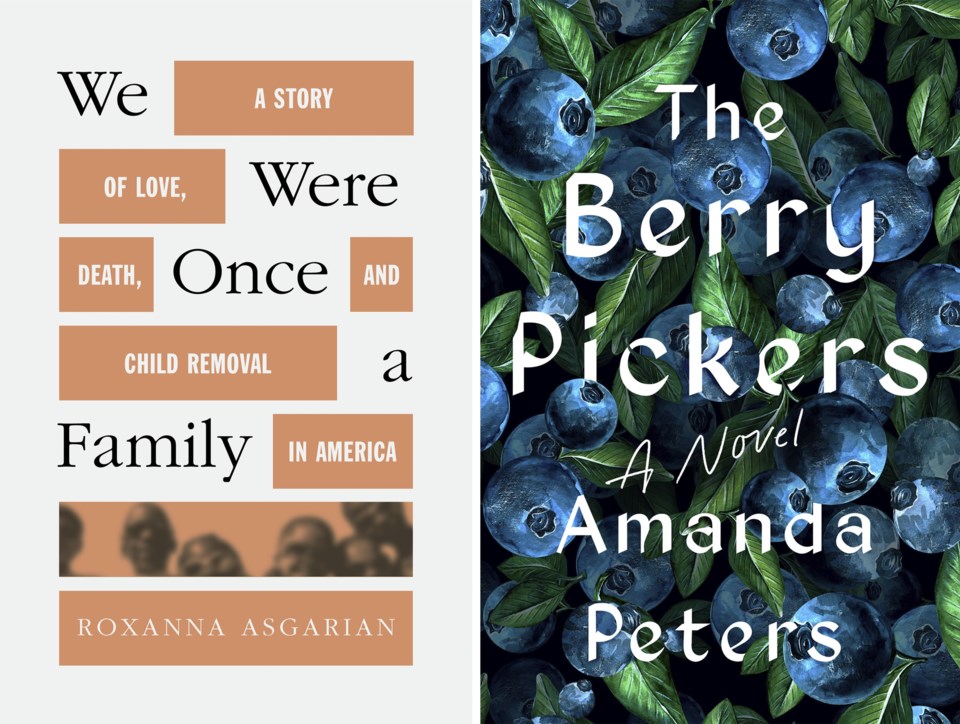NEW YORK (AP) — In the childhood home of author Roxanna Asgarian, there were restrictions on how often the television could be on and which programs could be watched.
Books were placed under a much looser set of rules.
“Mom would take us to the library and gave us totally free reign,” says Asgarian, a Las Vegas native who is now a freelance journalist in Dallas. She is one of this year's winners of an Andrew Carnegie Medal for Excellence, presented by the American Library Association.
“There were no limits and that was very helpful to me because I could follow my interests; I read Roald Dahl's books, one by one. I think when it comes to books and readings you have to be able to find what's interesting to you and pursue that. It helps you come to a love of reading. ”
On Saturday, the library association announced that Asgarian had won the nonfiction medal for “We Were Once A Family: Love, Death, and Child Removal in America,” her investigation into the Hart family murder-suicide from 2018, when a couple drove off a cliff with their six adopted children in the back. The fiction medal was awarded to Amanda Peters for her novel “The Berry Pickers,” a multi-generational story centered around the disappearance of a young Mi’kmaq girl from a blueberry field in Maine.
Each winner receives $5,000 and will be honored in June during the ALA's annual conference, being held this year in San Diego.
“Amanda Peters’ stunning prose and evocative narrative enraptured us with the grief and longing of her characters. Roxanna Asgarian’s blending of journalism, narrative nonfiction, and heartbreak tears back the veil on the child removal systems in the United States," Aryssa Damron, chair of the awards' selection committee, said in a statement.
Finalists for the Carnegie prizes were Jesmyn Ward’s “Let Us Descend” and Christina Wong’s and Daniel Innes’ “Denison Avenue” in fiction, and Jake Bittle’s “The Great Displacement: Climate Change and the Next American Migration” and Darrin Bell’s “The Talk” in nonfiction.
Peters, a native of Falmouth, Nova Scotia, has been a library patron for much of her life and received a master's in library and information studies from Dalhousie University. Now an associate professor at Acadia University in Wolfville, Nova Scotia, she remembers her high school library as the setting for a personal breakthrough: When she checked out a copy of John Steinbeck's “Of Mice and Men," the classic novella about two migrant workers and the tragedies that overcome them.
“I was 16 and sitting in the library and it changed the trajectory of my reading career," said Peters, who read the book at home. “It was such an emotional read. I had enjoyed books before, but this made me realize what a book can really do. It can make you feel so intensely. My mom came into my bedroom and I was crying, and she was like, ‘What’s wrong?'”
Peters says when she travels she still likes to visit a library before even going to a bookstore, sometimes looking through a given title at the library and deciding whether eventually to buy it. During a trip to New York City while she was working on “The Berry Pickers,” she visited the famed research section of the 5th Avenue branch of the New York Public Library.
“I was there (in New York) with some friends and they went shopping, but I wanted to visit the library so I took my computer and sat for a couple hours and wrote,” she said. “Such a beautiful spot.”
Asgarian said that Houston's African American History Research Center was vital for her reporting in “Once We Were a Family,” part of which is set in the city's historic Fourth Ward, a former Black Freedmen's Town established after the Civil War. The library was once a Black elementary school, attended by some of the people in her book.
“The research center was super, super valuable to me because of all the historical documents it held and the news clippings about the neighborhood," Asgarian said.
The Carnegie Medals were established in 2012 with the help of a grant from Carnegie Corporation of New York. Previous winners include Jennifer Egan, James McBride and Bryan Stevenson.
Hillel Italie, The Associated Press



